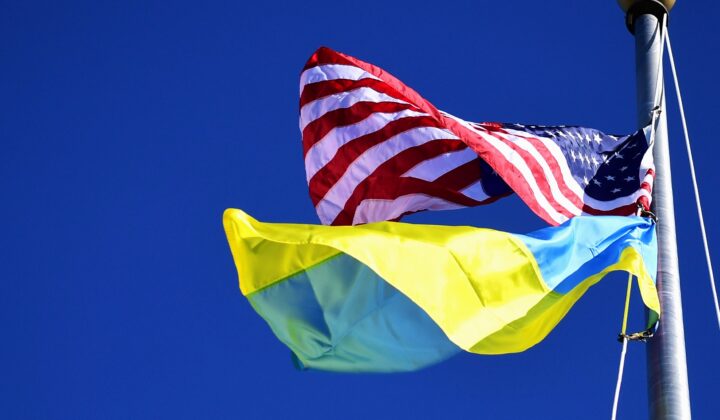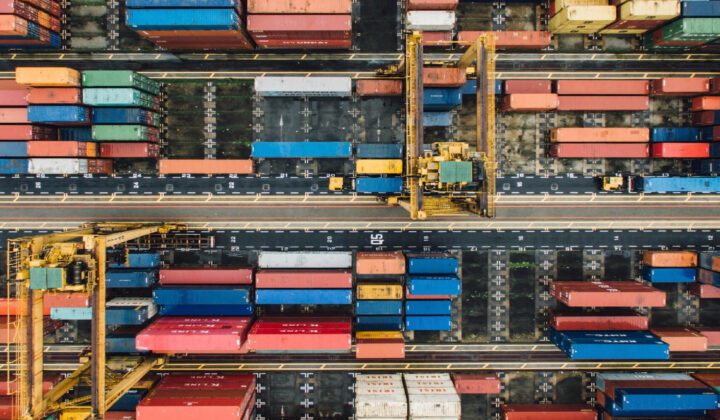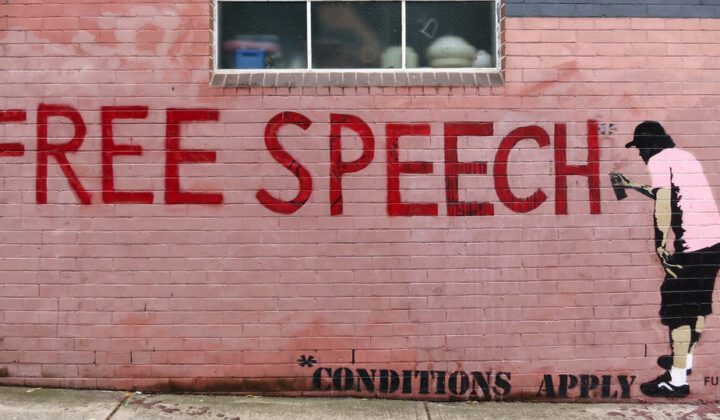It’s that time of year again where the global political and business elites meet in a Bond villain’s Swiss mountain lair to decide the future of humanity.
I’m kidding, but only barely. According to the World Economic Forum’s official mission, they convene 3,000 or so leaders “to improve the state of the world.” This year’s conference, running from Monday to Friday, includes events on a dizzying array of topics from “Revolutionizing Food Security” to “Building the Metaverse” to creating “A Living Wage for All.” Everything is eligible for improvement, apparently.
For those of us who aren’t among the chosen 3,000, Davos can look a bit odd. Hundreds of private jets shuttle in billionaires to solve climate change. A delegation from Saudi Arabia hosts a panel to celebrate progress in the despotic kingdom. Lavish parties follow heartfelt discussions on ending global poverty.
If Guantanamo Bay is a real-life caricature of American imperialism, then Davos is that but for globalism. The meeting fuels conspiracies that reflect massive distrust in the elite cadre that has declared itself humanity’s stewards. That’s the risk of hosting the meeting, which begs the question, what’s the benefit?
Why Davos?
Looking into Davos is a series of whys. Why a remote Swiss ski town in January? Why these 3,000 people? And perhaps most of all, why is “The Great Reset” the solution to humanity’s problems?
The answer to these questions is “Klaus Schwab.” Schwab is a German economist who created the World Economic Forum in 1971 and has served as its executive chairman ever since. He’s guided by a commitment to saving the world from the brink of disaster and the firm belief that a more benevolent type of business called “stakeholder capitalism” is our panacea. The 84-year-old has no plans of stepping down or even announcing a plan for succession. As World Economic Forum insiders told Politico, Schwab will stay in power until he dies.
No one at Davos is actually trying to create a new world order, but if anyone makes it seem like they might be, it’s Schwab with his iron grip on the event and promises of global transformation.
Since the World Economic Forum’s inception, Schwab has advocated for companies to involve themselves in social policy and actively shape the world beyond business. Climate change and wealth inequality are enabled by powerful corporations seeking profits, so why not make those companies part of the solution and get them to prioritize these things rather than just making money?
Well, it turns out that there may be good reasons not to put your faith in corporations as drivers of social change, and various academics have been calling for caution for decades. In 1970 Milton Friedman waded into the debate with one such piece explaining the distinct purposes of government and business and why they should stay separate.
Nevertheless, Schwab is convinced of the benefits of corporate-driven social initiatives which could operate independently of governments. That’s led him to some interesting views. In a 1999 interview with Forbes, Schwab said “the sovereign state has become obsolete,” and that we need a “global issue alliance” to really solve problems.
Observations about replacing sovereign states don’t win him any points with the conspiratorially minded, but it’s his work since 2020 that has really lit the fuse––The Great Reset.
Devised by Schwab in response to the pandemic, “The Great Reset” promises to “integrate all stakeholders of global society into a community of common interest, purpose and action.” Seemingly the whole world will be swept up in it as it fundamentally remakes humanity.
Schwab continues that The Great Reset “requires a new social contract centered on human dignity, social justice and where societal progress does not fall behind economic development.”
That all sounds good, but social contracts generally happen among people and within nations. This seems to be a social contract between corporate tycoons across borders on behalf of the global plebeians. The framework reinforces the idea that the masses are being ruled, and it has fueled wild conspiracies.
Last January, Glenn Beck published “The Great Reset: Joe Biden and the Rise of Twenty-First-Century Fascism” which is still in the top 100 best selling political books on Amazon a year later. In August, Alex Jones published his own book on The Great Reset, also selling tens of thousands of copies. On Breitbart, you’ll find an entire page dedicated to articles about The Great Reset.
Davos might not be creating our democratic crisis, but turning the alleged DC-Hollywood-Brussels-Wall Street Cabal into a real thing while the ringleader promises a cosmopolitan revolution certainly isn’t changing anyone’s opinion for the better. One would hope, then, that Davos offered something in return.
Davos & The Democratic Crisis
Above all else, Davos is about globalism. Corporations can unlock emerging markets and lift people out of poverty. Multinationals can partner with governments to fight global warming. Countries’ decisions will become less important as we all buy into The Great Reset and orient ourselves around common global goals.
At the cornerstone of Davos’s globalism is free trade. After all, half the people there made their fortunes in global markets. It’s no wonder they agree on its wondrous effects, and, to be clear, they have been pretty fantastic. Globalization has lifted billions around the world out of abject poverty and led to significant growth in the American economy.
Yet as Samuel Huntington noted in the 2004 piece where he popularized the term “Davos Men,” the public doesn’t necessarily agree with the Davos elite on this. “Four-fifths of the public but less than half of foreign policy leaders think protecting American jobs should be a ‘very important goal’ of the U.S. government.” Nevertheless, by the new millennium both the Democrats and Republicans were staunchly supportive of free trade with few controls for any of the downsides that accompany its advantages. Two decades later, we’re reaping the consequences.
Over the same half century that Davos has existed, the trajectory of American families has fundamentally changed. According to Yascha Mounk in his book “The People vs. Democracy,” the living standard of the median American household doubled from 1935 to 1960, and then again from 1960 to 1985, yet it has been virtually unchanged in the last three decades.
People who only achieve a high school diploma are more than twice as likely not to make it into the middle class than they were in the 1970s. While the economy grew, the wealthiest Americans who were more exposed to the benefits of globalization collected more wages, while many people earning steady incomes in sectors like manufacturing saw their positions go overseas.
As wages stagnated, conservative and progressive Americans both came to recognize that something wasn’t working properly. Eventually, they made themselves heard in the Occupy Wall Street and Tea Party movements, and then in the presidential campaigns of Bernie Sanders and Donald Trump. These insurgent campaigns were both based on trade protectionism, criticizing the gutting of the American middle class. Across the developed world, populist candidates on the left and the right gained popularity for vilifying globalization as a broken promise. Many of them took aim at the institutions of democracy itself as part of the problem.
As it stands, faith in public officials is critically low. Two-thirds of Americans believe that most politicians are corrupt. Conspiratorial thinking is rampant. And the people who have been most negatively affected by changes in our economy are increasingly supporting extremist candidates with little respect for democracy. We clearly have our work cut out for us.
The answer to this crisis would seemingly be a more democratic process that can balance middle-class interests and global economic growth, or at the very least lead to a status quo where millions of Americans are less interested in killing democracy.
What you absolutely shouldn’t do under these circumstances, though, is bring together the corporate and political ruling class to a remote, mysterious locale to achieve dubiously popular cosmopolitan goals with deliberately shocking names like “The Great Reset.” Davos wants to solve the world’s problems, but the global democratic crisis isn’t the result of too little elitism.





